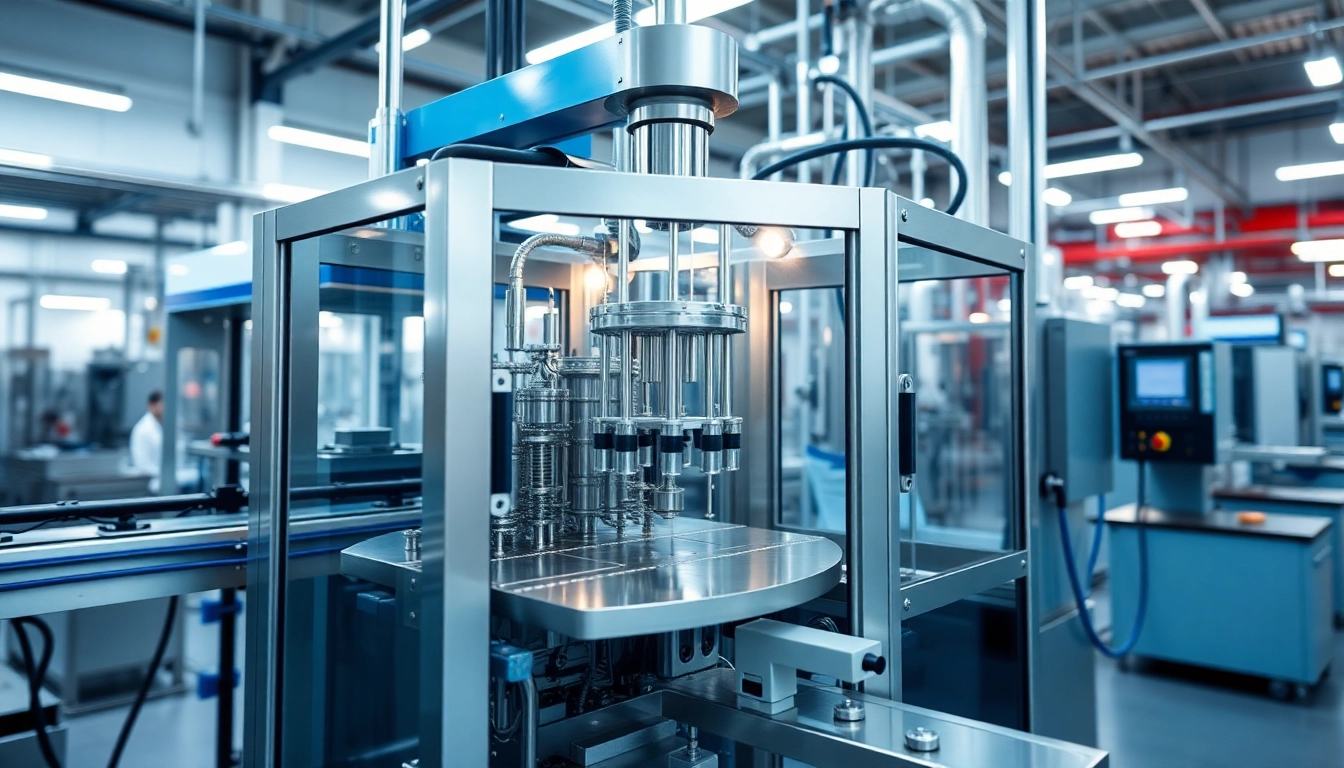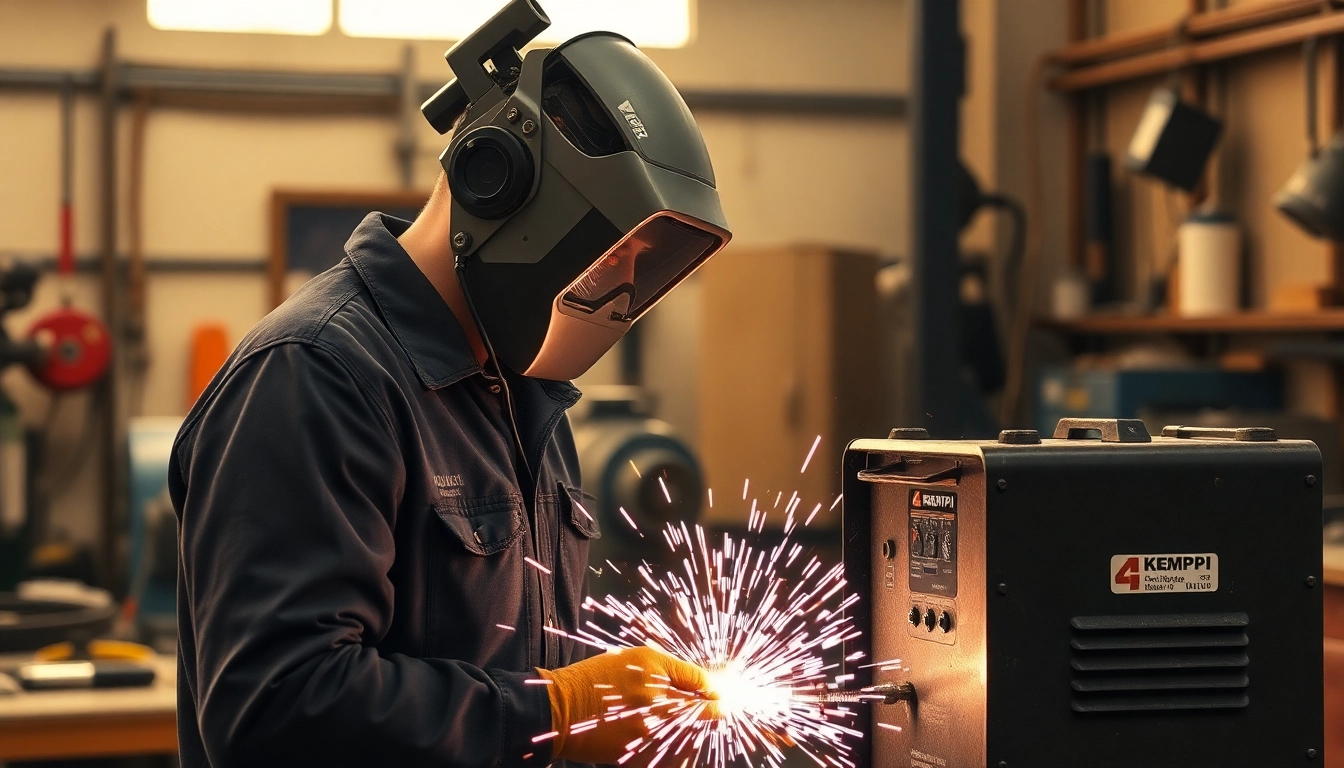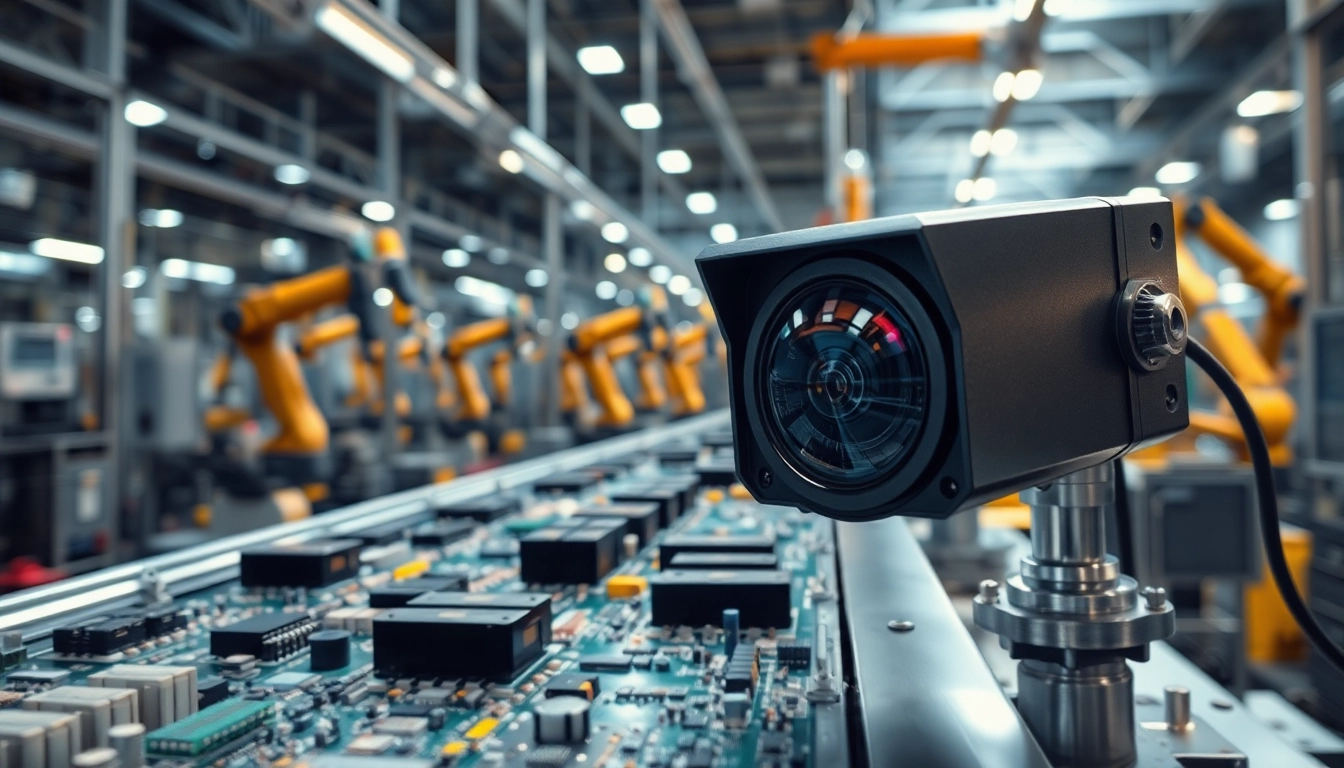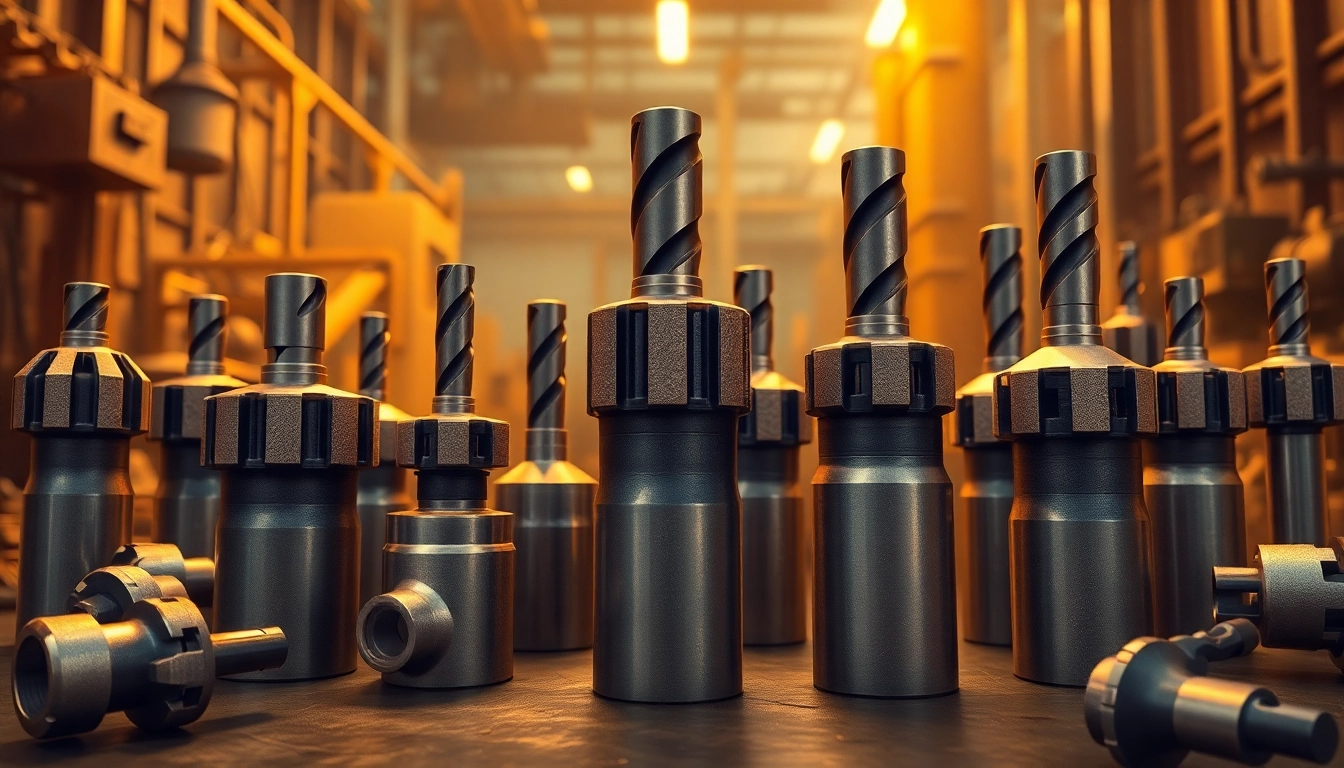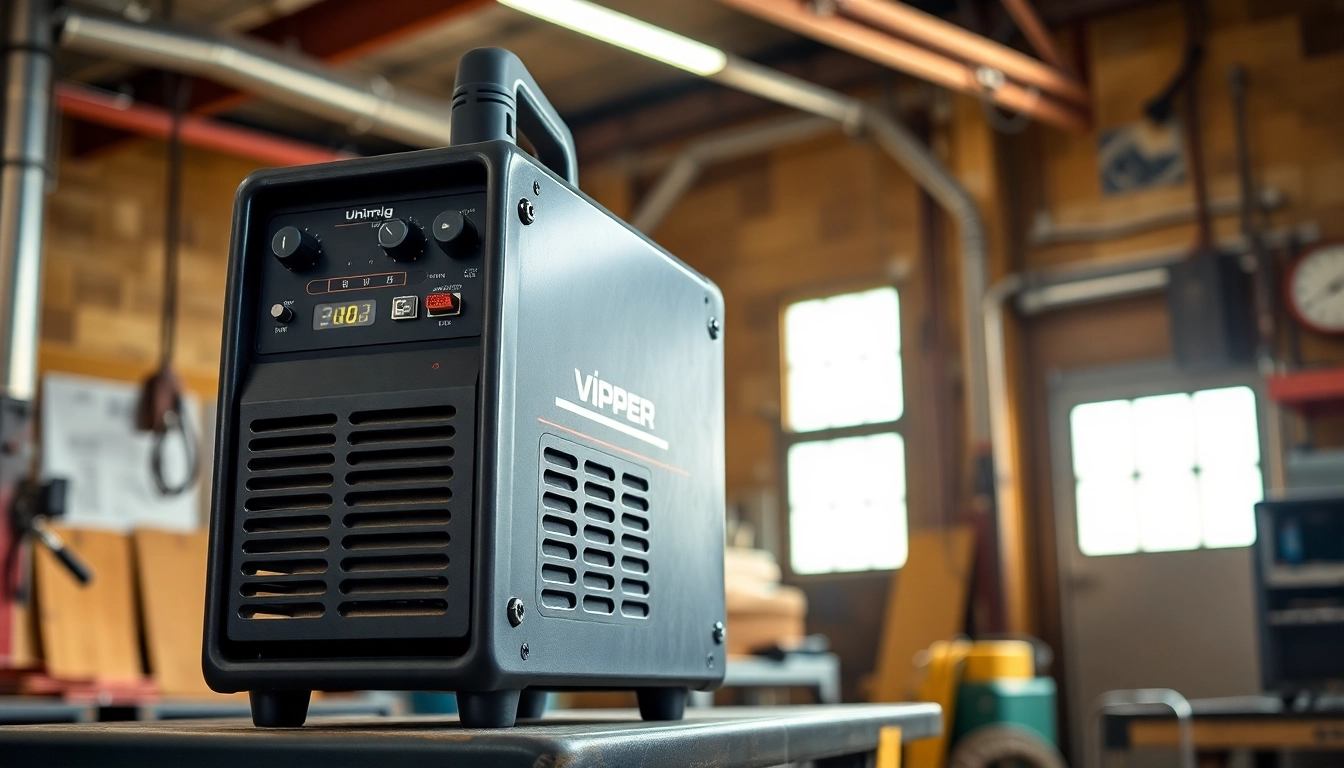Understanding Filling Machines
What is a Filling Machine?
A Filling Machine Supplier plays a crucial role in various industries, primarily focusing on the automation of filling containers with a specified volume of product, ranging from liquids to powders. A filling machine mechanically transfers the product into packaging containers such as bottles, jars, and pouches. These machines can be simple manual devices or highly sophisticated automated systems that integrate with larger production lines. Their primary aim is to enhance efficiency, accuracy, and hygiene during the packaging process, ensuring products are ready for sale without compromising quality or safety.
Types of Filling Machines
Filling machines can be categorized in various ways, mainly based on their operation, the type of product they handle, and the level of automation. Here’s a breakdown of the primary types:
- Gravity Filling Machines: These utilize gravity to fill containers with liquid products. They are best suited for less viscous liquids, such as water or juice.
- Piston Filling Machines: Using a piston mechanism, these machines are ideal for thick liquids and pastes, such as sauces and creams. They ensure precise volume dispensation.
- Vacuum Filling Machines: Suitable for filling products that may foam or generate air bubbles, vacuum filling machines draw the product into the containers, preventing bubbles.
- Pressure Filling Machines: These machines work by applying pressure to fill containers quickly and are best for carbonated beverages.
- Auger Filling Machines: Designed for powders and granulated substances, auger fillers use a helical screw to dispense the product accurately.
- Inline Filling Machines: A part of a conveyor system, these machines fill containers in a straight line, enhancing speed for high-volume production.
- Rotary Filling Machines: These highly efficient machines can handle large quantities, using multiple filling heads and a rotating mechanism.
Applications Across Industries
Filling machines find applications across a plethora of industries, underscoring their versatility:
- Food and Beverage: Commonly used to package sauces, oils, beverages, and snacks.
- Pharmaceutical: Essential for filling vials and bottles with liquids, powders, and tablets while maintaining stringent hygiene standards.
- Cosmetics: Used for creams, lotions, and serums, filling machines ensure precise volume dispensation.
- Chemical: Robust filling machines handle harsh chemicals and industrial liquids, ensuring safety and compliance.
- Petroleum: Filling machines in this sector manage fuels and lubricants, often requiring specialized features for safety and efficiency.
Choosing the Right Filling Machine Supplier
Key Factors to Consider
When selecting a filling machine supplier, several key factors should be taken into account to ensure you choose a reliable and competent partner:
- Experience and Expertise: Consider suppliers with a proven track record in the industry. Their experience will often translate into valuable insights and capabilities that can enhance your production process.
- Product Range: Ensure the supplier offers a wide variety of filling machines that fit your specific product requirements. Flexibility is crucial if your production needs change over time.
- Customization Options: Every business has unique needs. Choose a supplier that can cater to your specific requirements, offering customizable solutions that align with your operational goals.
- After-Sales Support: A supplier’s commitment to ongoing support can make a significant difference in maintaining equipment and operational effectiveness over time. Look for suppliers who offer robust customer service and technical support.
- Quality Certifications: Ensure that the supplier meets relevant industry standards and quality certifications. This not only guarantees the reliability of the machines but also compliance with safety regulations.
Questions to Ask Your Supplier
Having the right questions ready before engaging with potential suppliers can help in making a well-informed choice. Consider asking:
- What are your lead times for delivering machines?
- Can you provide case studies or references from similar industries?
- What options do you offer for spare parts and accessories?
- Do you provide training for operating and maintaining the machines?
- What warranty and service agreements do you offer?
Assessing Quality and Reliability
Quality and reliability are paramount when sourcing a filling machine supplier. Here are methods to evaluate them:
- Reviews and Testimonials: Research online reviews and seek testimonials from other customers who have purchased from the supplier.
- Site Visits: If possible, visit the supplier’s manufacturing facility. This can give insights into their production quality and operational standards.
- Demonstrations: Request live demonstrations of the machines. Observing a machine in action can provide valuable insights into its performance and reliability.
- Trial Periods: Some suppliers may offer trial periods or money-back guarantees. This can be an excellent way to assess performance before committing fully.
Benefits of Partnering with a Trusted Supplier
Increased Production Efficiency
Working with a reputable filling machine supplier can significantly enhance production efficiency. Here are some reasons why:
- Advanced Technology: Trusted suppliers often use the latest technology and innovations in their machines, leading to faster and more reliable operations.
- Tailored Solutions: A reliable supplier will understand your operational processes and provide machines that suit your specific needs, minimizing downtime and bottlenecks.
- Streamlined Integration: A competent supplier will ensure their machines integrate seamlessly into your existing production line, optimizing workflow and reducing manual handling.
Cost-Effectiveness and ROI
Investing in a high-quality filling machine can yield significant cost savings and a higher return on investment (ROI) over time. Key considerations include:
- Reduced Labor Costs: Automated filling machines reduce the need for extensive manual labor, allowing staff to focus on more critical tasks.
- Minimized Material Waste: Precise filling capabilities ensure that products are not overfilled, thereby reducing waste and leading to significant savings on materials.
- Operational Longevity: High-quality machines are built to last, meaning decreased frequency of replacement and repairs, which contributes positively to budget management.
Customer Support and Service
Strong customer support and service can not only resolve immediate issues but can also be a key factor in overall operational success. Some aspects to consider include:
- Responsive Support: Look for suppliers who offer 24/7 technical support.
- Training Programs: Quality suppliers often provide comprehensive training programs for your staff.
- Maintenance Services: Regular maintenance services can prolong the lifespan of your machines and avoid unexpected stoppages.
Latest Innovations in Filling Technology
Smart and Automated Solutions
Recent technological advancements have led to a more sophisticated approach to filling machine design, heavily focusing on automation and smart technology. Key innovations include:
- IoT Integration: Machines now feature IoT capabilities, allowing for real-time monitoring, tracking production efficiency, and predictive maintenance alerts.
- AI-Powered Analytics: Some modern filling machines use AI to optimize filling processes, enhance accuracy, and predict potential issues before they arise.
- Flexible Manufacturing Systems: Contemporary filling machines can be reprogrammed quickly for different products, which is invaluable for manufacturers with diversified product lines.
Sustainability and Eco-Friendly Options
As industries evolve, there’s an increasing emphasis on sustainability. Suppliers are responding with eco-friendly filling machine solutions, including:
- Energy-efficient Systems: New machines use less energy, reducing overall carbon footprints and operating costs.
- Recyclable Materials: Many manufacturers are shifting toward materials that are easier to recycle, aiding their clients in achieving sustainability goals.
- Reduced Water Usage: Innovations also encompass machines designed to minimize the water required for cleaning and maintenance.
Future Trends in Filling Machines
Looking ahead, the future of filling technologies appears promising, with an array of trends expected to shape the industry:
- Increased Customization: As consumer demand continues to evolve, flexibility and customization in filling machines will become more critical.
- Robotic Automation: The integration of robotic systems will likely expand, enhancing efficiency and minimizing human error.
- Remote Access Technologies: Future filling machines are expected to incorporate advanced remote access for troubleshooting, monitoring, and optimizing performance from afar.
Conclusion: Maximizing Your Investment in Filling Technology
Summarizing Key Takeaways
Investing in a filling machine is a significant decision that can have substantial implications for your production line’s efficiency, reliability, and overall success. Key takeaways include:
- Understand the types of filling machines available and their suitability for your products.
- Choose a supplier who not only provides high-quality machines but also offers training and ongoing support.
- Stay informed about the latest advancements in technology to ensure that your operations remain competitive and efficient.
Implementing Best Practices
After choosing the right filling machine supplier, aligning with best practices is essential to maximize your investment:
- Conduct regular maintenance and updates to keep your machine performing optimally.
- Train your staff thoroughly to optimize the use and maintenance of the machines.
- Continuously evaluate and adapt your filling processes based on performance metrics and feedback.
Contacting a Leading Filling Machine Supplier
Establishing a partnership with a leading filling machine supplier is fundamental to achieving long-term success in your production efforts. By doing so, you optimize productivity, ensure high-quality output, and ultimately enhance your bottom line.
